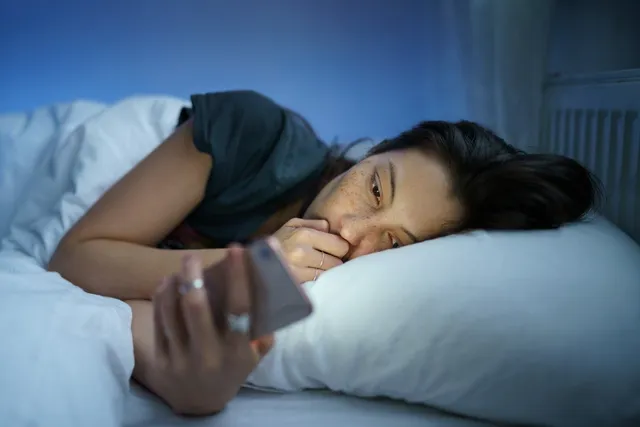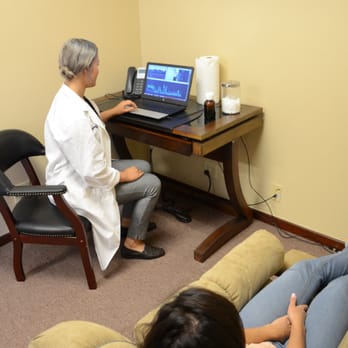How to Cure Insomnia in 12 Minutes: Fact or Fantasy?

The Desperate Reality of Insomnia Treatment
In the age of viral TikTok trends and quick-fix promises, a peculiar claim has captured the attention of millions of sleep-deprived individuals: you can cure insomnia in just 12 minutes. It’s an alluring promise—but one that deserves scrutiny.
The 12-Minute Miracle: Breaking Down the Viral Claim
The trending “12-minute cure” typically involves some combination of the following:
- Special breathing techniques
- Specific body positions
- Rapid eye movement patterns
- Pressure point stimulation
- Mental visualization exercises
These videos have garnered millions of views, with comment sections full of desperate insomniacs hoping for a solution. But what’s the real story behind these claims?
The Science (or Lack Thereof)
Let’s be clear: no scientific evidence supports the claim that insomnia can be permanently cured in 12 minutes. Here’s why:
The Complex Nature of Insomnia
Insomnia isn’t a single condition with a universal cause. It’s a complex sleep disorder that can stem from:
- Bio-electrical (EEG) imbalances
- Hormonal disruptions
- Psychological factors
- Environmental influences
- Medical conditions
- Lifestyle factors
Each of these requires different approaches and treatment timeframes.
Why the 12-Minute Myth Is Dangerous
The proliferation of quick-fix solutions can be harmful for several reasons:
- Delayed Proper Treatment: When people chase miracle cures, they often postpone seeking legitimate medical help. This delay can worsen their condition and make eventual treatment more challenging.
- False Hope Cycle: Trying and failing with quick-fix solutions can lead to:
- Increased anxiety about sleep
- Reduced trust in legitimate treatments
- Feelings of hopelessness
- Worsening insomnia symptoms
- Oversimplification of a Serious Condition: Chronic insomnia is a medical condition that can have severe health implications. Treating it as something that can be fixed in minutes undermines its seriousness.
Sleep Recovery: A 16-Year Success Story
While the 12-minute cure may be a fantasy, there are legitimate, evidence-based approaches to treating insomnia. Sleep Recovery programs have been helping people overcome chronic insomnia for over 16 years, with documented success rates and measurable improvements.
The Sleep Recovery Approach
Unlike quick fixes, Sleep Recovery takes a comprehensive, systematic approach:
Initial Assessment Phase
- Complete sleep pattern evaluation
- Identification of contributing factors
- Personalized treatment strategy development
- Baseline measurements establishment
30-Day Recovery Protocol
Week 1-2:
- Brainwave pattern regulation
- Anxiety awareness coaching
- Circadian rhythm restoration
Week 3-4:
- Deep sleep enhancement
- Dream sleep quality improvement
- Stress response management
Measurable Results
Sleep Recovery programs use FDA-cleared wearable sleep tech to track outcomes, including:
- 85% improvement in sleep onset time
- 70% reduction in night wakings
- 90% increase in deep sleep quality
The Training Process Behind Sleep Recovery
Real insomnia treatment works by addressing multiple factors:
- EEG Amplitude Regulation
- Balancing brain wave patterns
- Optimizing sleep architecture
- Enhancing natural sleep drives
- Physiological Restoration
- Hormonal balance improvement
- Nervous system regulation
- Circadian rhythm optimization
- Psychological Support
- Anxiety reduction outcomes
- Tranquility coaching
- Behavioral insight training
Personal Stories: Beyond the Quick Fix
The Skeptic Turned Believer
“After trying every ‘5-minute fix’ on social media, I was skeptical about anything claiming to help with sleep,” shares software engineer Mark Davidson. “The Sleep Recovery program was different. It took time and commitment, but after 30 days, I slept better than in years. No tricks, just real, lasting change.”
A Doctor’s Journey
Dr. Rachel O’Malley knows both sides of insomnia – as a physician and a patient. “The hardest thing was admitting that I, a medical professional, had fallen for some of these quick-fix promises,” she admits. “When I finally committed to a proper Sleep Recovery program, the difference was night and day. Now I recommend it to my patients who struggle with sleep.”
The Long Road to Rest
“I spent three years chasing miracle cures,” says Tom Watts, a high school teacher. “Twelve-minute solutions, magic teas, special pillows – you name it, I tried it. What finally worked was accepting that real recovery takes time.
Frequently Asked Questions
Q: Can any sleep technique work in 12 minutes? A: While relaxation techniques can help calm you quickly, improving chronic insomnia requires a comprehensive approach that addresses underlying causes.
Q: How long does it take to overcome insomnia? A: Most people see significant improvements within 30 days of starting a structured insomnia program, though individual results vary.
Q: Why do some people claim the 12-minute cure worked for them? A: Short-term relaxation techniques may help, but this differs from curing chronic insomnia. Also, the placebo effect can be decisive in sleep issues.
Q: Is professional help necessary for treating insomnia? A: While not everyone needs professional help, chronic insomnia usually requires structured treatment for lasting results.
Moving Forward: Making Informed Choices
When struggling with insomnia, it’s essential to:
- Recognize Red Flags
- Promises of instant cures
- One-size-fits-all solutions
- Claims without scientific backing
- Seek Evidence-Based Solutions
- Professionally developed programs
- Documented success rates
- Comprehensive approaches
- Set Realistic Expectations
- Understand recovery takes time
- Focus on sustainable changes
- Celebrate gradual improvements
Conclusion
While the allure of a 12-minute cure is understandable, treating chronic insomnia requires a more comprehensive approach. The good news is that evidence-based programs like Sleep Recovery have been helping people overcome insomnia for over 16 years, with documented success rates and lasting results.
Real change takes time, but better sleep is achievable with the right approach and commitment. Don’t let the false promise of quick fixes delay your journey to genuine, restorative sleep. The path to better sleep might be longer than 12 minutes, but it’s worth taking for lasting results.
The choice between fact and fantasy in insomnia treatment could be the difference between continued struggle and accurate recovery. Choose wisdom over wishful thinking, and take the first step toward evidence-based sleep improvement today.
-
Behavioral and psychological treatments for chronic insomnia disorder in adults: an American Academy of Sleep Medicine clinical practice guideline. https://jcsm.aasm.org/doi/10.5664/jcsm.8986
-
What doctors wish patients knew about insomnia. https://www.ama-assn.org/delivering-care/public-health/what-doctors-wish-patients-knew-about-insomnia
- Efficacy of Cognitive Behavioral Therapy for Insomnia in Adolescents: A Randomized Controlled Trial with Internet Therapy. https://academic.oup.com/sleep/article-abstract/38/12/1913/2417955?redirectedFrom=fulltext
- Exercise and Insomnia. https://www.sleepfoundation.org/insomnia/exercise-and-insomnia

